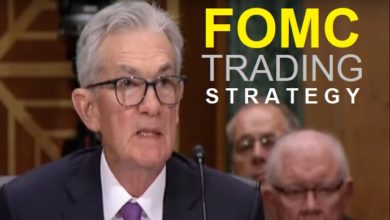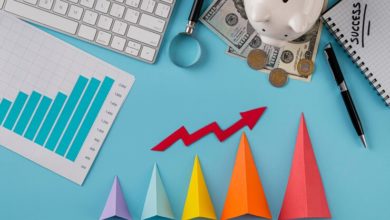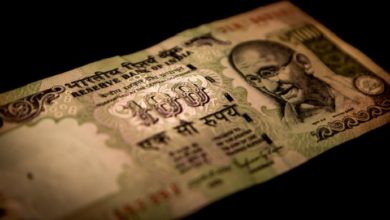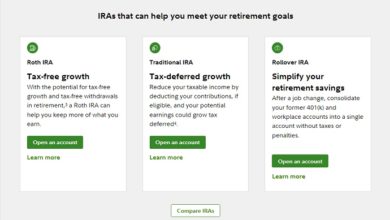
CFD trading, or Contract for Difference trading, is an increasingly popular way to trade various financial instruments in the UAE. It allows traders to speculate on the rise and fall of prices without owning the underlying asset, with potential earnings or losses linked directly to changes in the price. CFD trading can trade stocks, commodities, indices, cryptocurrencies and more.
This article explores how CFD trading works in the UAE and what you need to know before starting.
What are CFDs, and how do they work?
A CFD (or Contract for Difference) is a contract between two parties who agree to exchange the difference between an underlying asset’s opening and closing prices. This means you can take advantage of rising and falling prices without buying the asset itself. CFDs also allow traders to leverage their capital, meaning they can buy more prominent positions with a smaller initial investment.
So how does CFD trading work in the UAE? In the UAE, CFD trading is available through regulated brokers authorised by the Securities and Commodities Authority (SCA). These brokers provide access to all major markets worldwide, including stocks, commodities, indices, and cryptocurrencies. To start trading, you’ll need to open an account, deposit funds, and select an asset to trade.
Benefits of CFD trading in the UAE
CFD trading offers several advantages over other forms of financial trading:
Leverage: CFD trading allows traders to leverage their capital, meaning they can buy more prominent positions with a smaller initial investment. This is especially useful for those who don’t have the necessary funds to invest in certain assets.
Low costs: Since CFDs are traded over the counter, they have no extra fees or commissions, making them a cost-effective way to trade.
Accessibility: Thanks to its low barriers to entry and accessibility to all major markets worldwide, CFD trading is open to anyone regardless of their experience level or financial situation.
Flexibility: Because they’re leveraged products, traders can choose different levels of risk depending on their appetite and capital.

Risks of CFD trading in the UAE
As with any form of investment, there are risks associated with CFD trading. These include:
Market risk: The underlying asset price can go up or down, meaning that traders are exposed to fluctuations in the market. This means that you could potentially lose more money than your initial investment.
Leverage risk: CFDs allow traders to leverage their capital and buy more prominent positions with a smaller initial investment. However, this also means traders are exposed to more significant losses if the market moves against them.
Counterparty risk: When trading CFDs, you agree with a broker acting as your counterparty. There is always a chance that they may not fulfil their obligations and could default on any payments due to you.
Risk management strategies
It’s essential to be aware of the risks associated with CFD trading and to take steps to manage them. This can include:
Setting stop losses: Stop losses are used to limit losses on trade by automatically closing it when the price reaches a certain level. This will help you avoid taking more significant losses than your initial investment.
Diversifying your portfolio: It’s essential to diversify your investments across different markets and assets, so you aren’t overly exposed to one asset.
Limiting leverage: Leverage magnifies both gains and losses, so it’s essential to use it responsibly. You should only use leverage if you understand the risks and have the capital to cover potential losses.

Valuable tips for beginner traders
If you’re new to CFD trading in the UAE, there are a few tips that can help you get started:
Research: Before trading, it’s essential to research and understand the risks associated with CFDs. It would help to familiarise yourself with the different markets and assets you’re trading.
Set realistic goals: Having realistic expectations when trading CFDs is essential. Don’t expect to make significant returns overnight – instead, focus on long-term objectives and aim for consistent gains over time.
Use a demo account: Most brokers offer a free demo account which allows you to practise trading without risking any real money. This is a great way to get comfortable with CFD trading before investing your capital.
To that end
CFD trading offers a range of benefits, including low costs, leverage, accessibility, and flexibility. However, it’s essential to be aware of the risks associated with CFD trading and to take steps to manage them. With the right risk management strategies, you can use CFDs as part of a diversified portfolio that can help you capitalise on rising and falling markets.
The UAE is an attractive destination for CFD traders due to its regulated brokers and worldwide access to all major markets. By choosing a reputable broker, taking advantage of leverage responsibly and having an effective risk management strategy, you can make informed decisions when trading CFDs in the UAE.









DISCLAIMER: The information provided on InvestmentTotal.com is for general informational purposes only. The content on this website is not intended to be, and should not be construed as, professional financial advice.